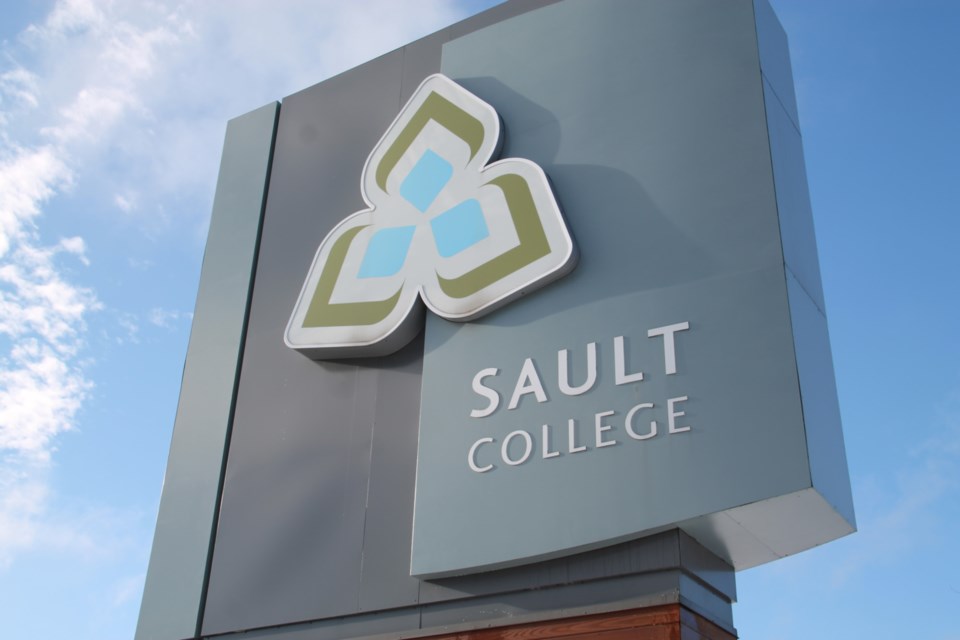More than half of Ontario's public colleges — including Sault College — are facing a smaller intake of international students in a plan announced Wednesday by Premier Doug Ford's government.
The province is placing a priority on public colleges and universities for all available international student permits while private career colleges will receive none.
That includes TriOS College in Brampton, which has a public-private partnership agreement with Sault College.
3,530 permits were issued in 2023 for Sault College’s main campus on Northern Avenue along with its Brampton and Toronto campuses.
The allocation for international students for Sault College’s main campus is 1,293 for 2024 — a 63 per cent reduction.
“It’s a significant reduction. We’re disappointed that the number of permits was not greater because obviously there’s an impact,” said David Orazietti, Sault College president, in an interview with reporters after Thursday’s Sault College board of governors meeting.
“The public colleges that had private partners took a much greater hit, took a much greater reduction in the number of study permits and therefore it will have a greater, negative financial impact (on Sault College).”
The Ford government’s allocation of international students for colleges comes after Immigration Minister Marc Miller announced in January that the federal government will impose a two-year cap on international student admissions.
The cap stems in part because of "bad actors," a term Ottawa has used to describe unethical colleges that exploit international students with high fees while not delivering quality education.
Ottawa says the cap is also being put in place while the country experiences a national housing shortage.
The revenue that is provided to Sault College through its public-private partnership with TriOS College is equivalent to approximately $40 million of the college’s budget of $125 million.
“It is very impactful for public colleges that had public-private partners that were following the rules, that were engaged in responsible, ethical recruitment of students,” Orazietti said.
“We are taking a much greater reduction in the number of study permits we were receiving and as a result we will be facing a much greater negative financial impact than public colleges whose international students came directly to their campus and did not have a public-private partnership.”
Orazietti said he has some tough questions for Immigration, Refugees and Citizenship Canada.
“My question is: ‘Why would you implement a policy that impacts good actors?’”
“As a good actor in this sector well below our 7,500 cap for our private partnership with only 2,800 students there (TriOS College), with a full suite of services offered to our students, we’re being negatively impacted. He (Immigration Minister Marc Miller) is indicating good actors wouldn’t be impacted. They clearly are. He’s indicating that he would step in should that happen so I would certainly like to know what he’s prepared to do.”
“We have made our circumstances well known to both the provincial ministry and the federal ministry, and we will continue to do so,” Orazietti said.
Sault College has had a public-private partnership with TriOS College since 2019.
Sault College will have a last intake of international students at TriOS College in May, those students able to finish their education with Sault College over the next two years.
Orazietti said the college will be assessing the financial hit Sault College will take as part of its budgetary process and hopes to present a budget to the college’s board of governors before the end of June.
Sault College has 320 full-time and 400 part-time employees in Sault Ste. Marie.
“I’m not going to speculate on any budgetary impact or staffing impacts at this time. We will be doing everything that we can to continue to ensure that we minimize any disruption to our organization that has been created by recent federal and provincial decisions.”
Orazietti said there was no mention in Ontario’s budget, released Tuesday, of implementing an Ontario Blue-Ribbon Panel’s recommendations to end the government’s post-secondary tuition freeze and increase per-student funding to its universities and colleges.
Jill Dunlop, Minister of Colleges and Universities, announced Feb. 26 that the province will provide $1.3 billion to the province’s post secondary education sector to sustain it partly due to the federal government’s international student cap.
“Any funding from the province toward our operations is welcome but I feel that the (Blue-Ribbon Panel) recommendations could have and should have been fully implemented and the funding falls well short of our needs,” Orazietti said.
